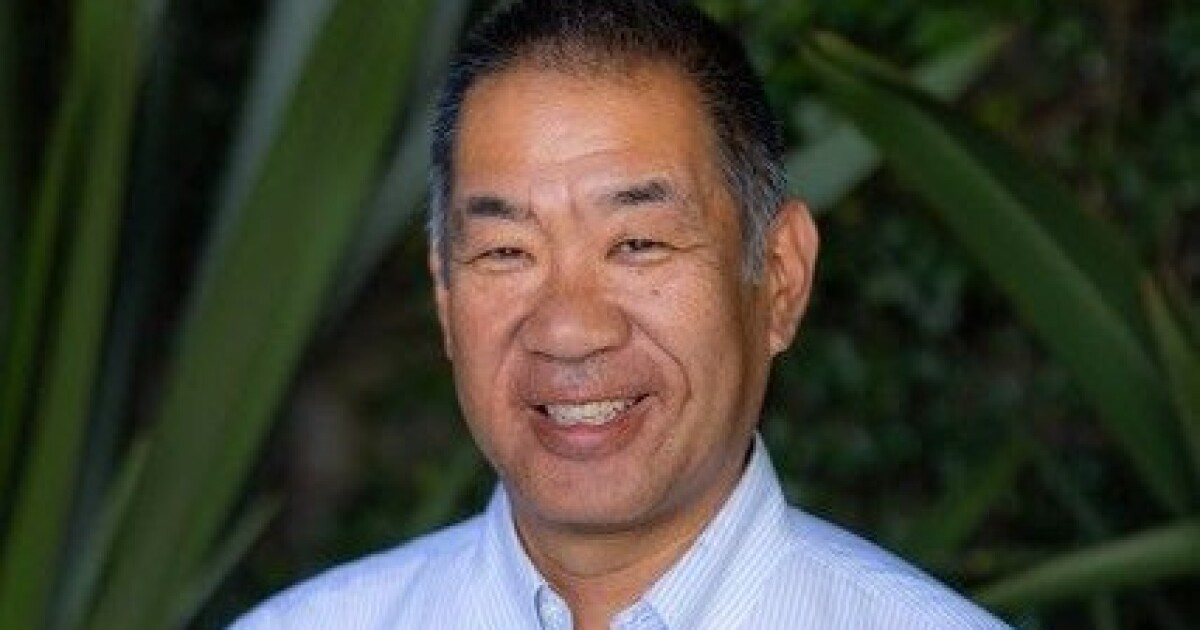Nakahata shares his vision as new leader of California IBank
5 min read

California Infrastructure and Economic Development Bank
After more than three decades as a banker in public finance, Andy Nakahata has adapted quickly to working in the public sector.
Nakahata, who joined the California Infrastructure and Economic Development Bank
Working on IBank’s broad mission and its multiplicity of programs to further economic development in the state appealed to Nakahata, he said.
“It’s a different opportunity,” Nakahata said. As a public finance banker “my job was to optimize capital market structures and come up with creative ideas, but all in the debt markets.”
Working with IBank means working in economic development as well as infrastructure financing, he said.
“There is so much we do,” Nakahata said. “We do work that touches individual Californians.”
IBank was created in 1994 to finance public infrastructure and private development in California and has the authority to issue tax-exempt and taxable revenue bonds, make loans, provide credit enhancement and leverage state and federal funds.
Governed by a five-member board, the IBank became part of the governor’s Office of Business and Economic Development in July 2013. Then-Gov. Jerry Brown also signed legislation in October 2013 placing California’s Small Business Loan Guarantee Program and its farm lending program under IBank’s umbrella.
Nakahata left a position as director and western region head of public finance at
Prior to working at TD, Nakahata was head of UBS’
Before handing off to Nakahata, Scott Wu, whose last day as executive director is Tuesday, made sure the organization was in good shape by filling vacant positions, Nakahata said. The hires brought IBank to its current employee count of 37, including Wu.
“I can’t stress enough my appreciation for Scott Wu and his leadership at IBank,” Nakahata said. “He led us through some rocky times as a state, nation and world. Under his leadership, IBank celebrated its 30th anniversary and it continues to be a successful state agency.”
During Wu’s tenure that began in 2019, his focus was on job creation, increasing capital access to underserved communities and climate finance, Nakahata said.
Toward those goals, Wu financed programs that added 90,000 jobs, provided COVID-19 relief for small businesses during the lock-down and helped attract $2 billion in federal funding for the state and its entrepreneurs, Nakahata said.
“IBank just celebrated a record-breaking year and it has done that year-after-year,” he said.
The IBank team worked on $58 billion in total finance activity in fiscal year 2024-25, including $1 billion in loans and $3.1 billion in bond financing for 12 projects, according to IBank data. The amount of bond financing was the IBank’s second highest since its inception, according to Karen Naungayan, IBank’s deputy director of external affairs.
Changes at the federal level could mean a shift for IBank.
“I think we are seeing a wholesale shift in the relationship between the federal government and state and local governments,” Nakahata said. “I am helping to monitor the situation and figuring out what gaps we can fill.”
Nakahata thinks the state legislature will continue to turn to IBank as a financing tool to bolster programs that might be harmed by cuts to federal funding.
He pointed to the bill signed by Gov. Gavin Newsom as part of a
The intention of the legislation is to reduce electric bills, stabilize the gas market and cut pollution, Nakahata said.
During his time as COO, a job that Nakahata described as making sure the trains run on time, Nakahata said he immersed himself in all of IBank’s operations and each of its programs.
“That was great training on all of the programs enabling me to step into leadership,” he said. “I know what goes on in our programs, what opportunities exist for growth and how I can help IBank expand into other areas.”
He sees part of IBank’s role as filling gaps left by other state programs.
For instance, IBank provides
“We work with every museum up and down the state,” Nakahata said. “We fill gaps like that to provide access to the capital markets.”
When Adventist Health wanted to issue $336.3 million in debt for an energy-as-a-service transaction it turned to IBank, he said. Though it has issued most of its debt through the
The deal was financed as a public-private partnership with Roseville Sustainable Energy Partner LLC as the borrower with Bernard MCC and Adventist as the operator, according to IBank’s
Nakahata wants to expand the use of IBank’s infrastructure loan revolving loan fund, which he says is underutilized though it has managed to leverage the $162 million allocated by the Legislature in 1999-2000 into $1 billion in municipal loans. Lawmakers added another $25 million allocation in the 2024-25 budget to the program, according to the 2023-24 annual report.
“It can provide easier access for municipal entities, so they don’t have to go to the capital markets for public borrowing or for private bank loans,” Nakahata said. “We provide them with tax-exempt financing. We aren’t a private bank needing to fund a return on investment.”
Since Nakahata believes the program is underused because of a lack of understanding about how it works, he is working to rectify that by reaching out to people.
IBank is streamlining the description of the program on its website and building pro forma term sheets, so potential applicants can see what IBank is looking for.
In conversations with municipal bond advisors, Nakahata has heard they never really understood the advantages of tapping the program, he said.
“It’s on us to help people understand how we price,” he said.
Looking ahead, what Nakahata would like to be known for is transparency and accessibility and a willingness to do the work as directed by the Legislature and the governor.
“We aren’t the ones creating state policy,” Nakahata said. “We are providing financial accessibility for state policy and that’s the goal.”






